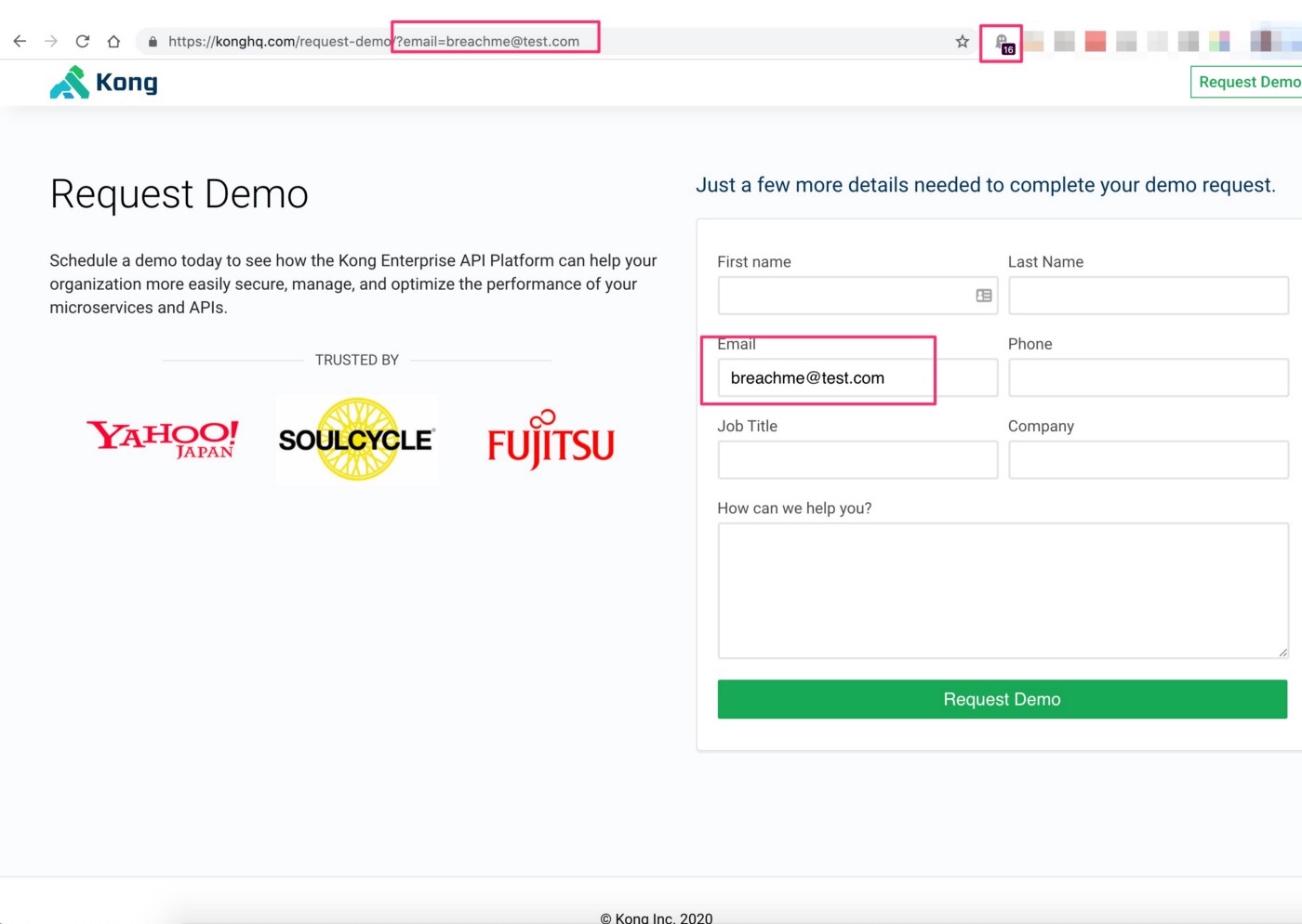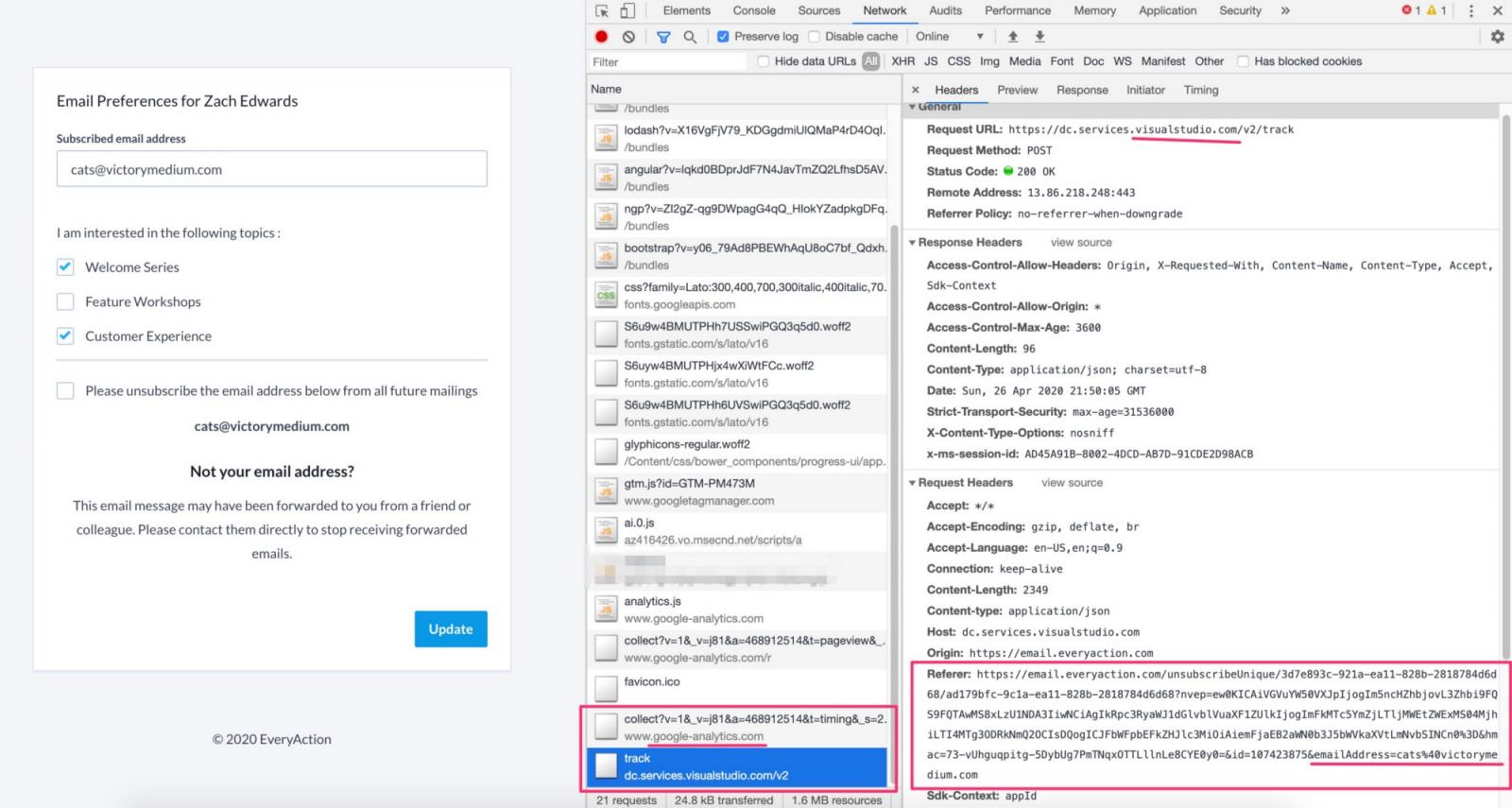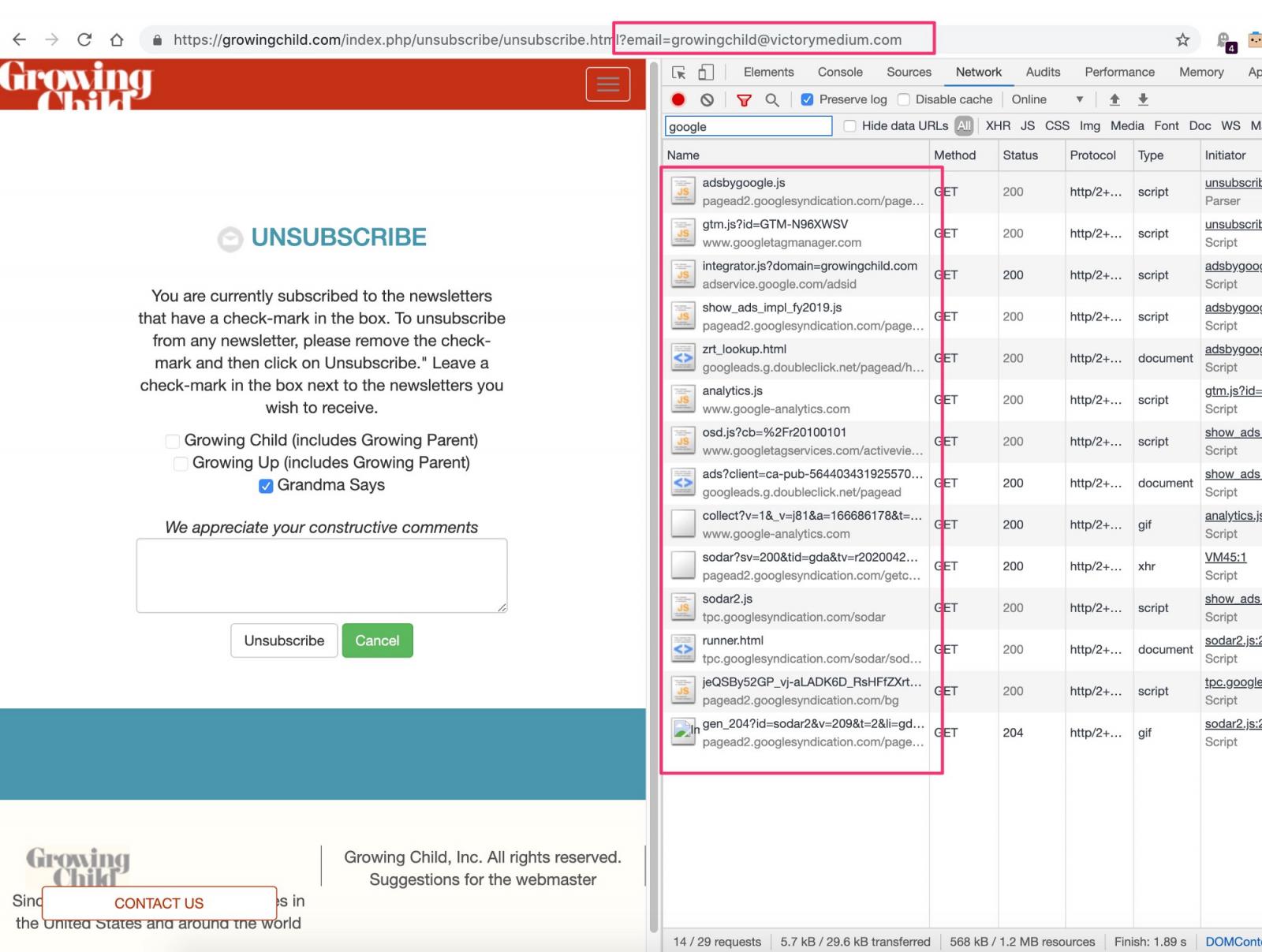
Multiple online services and products are leaking email data belonging to their users to third-party advertising and analytics companies, shows a research published today.
Websites mentioned in the report include Quibi.com, JetBlue.com, KongHQ.com, NGPVan.com, Mailchimp’s Mandrill.com, WashingtonPost.com, Wish.com. Between them, there are hundreds of millions of emails.
Free email addresses
These are not the only ones affected, though; an unknown number is currently leaking this type of data, says Zach Edwards from Victory Medium, a company offering web analytics and testing systems. In some cases, email data is leaked to dozens of such service.
On the list of parties receiving email information are major services providing analytics, advertising, tracking, optimization, and marketing instruments, like Google, Facebook, Twitter, Mixpanel, Wistia, Pardot, CrazyEgg, New Relic, DrawBridge.
Edwards pinned the issue to improper setup of marketing analytics systems, which could receive user email addresses from email systems, user signup or unsubscribe flows.
“When any 3rd party Javascript code loads on a website, metadata from the user and the website can be transmitted to the 3rd party domain / company that controls that code” - Zach Edwards
The details are passed in request headers through a web browser and can be anything from a page the user visited to their location, type of device used, or other forms of information: fingerprinting, cookies, URL query string or parameters.
Edwards points that says that passing email data in a URL bar through JavaScript can be prevented by using ad blockers. This could also happen by default in Safari, Brave, and Firefox browsers. But not in Google Chrome, where users have to explicitly disable JavaScript.
In some cases, email data leaked this way was passed in plain text while in other instances the simple base64 encoding was used, so protection was only on the surface.
Edwards calls the leaks data breaches, since email addresses count as personal information and is, therefore, protected through regulations and laws in many countries.
Creating new account? URL gets your email
In his report today, the researcher provides several scenarios that leaked users’ emails to various third-party services through JavaScript code that collects data from a website.
One example is Quibi short-form mobile video platform, which passes a new user’s email when they click on the confirmation link for setting up an account.
“When a user clicks this email confirmation link, their email address is appended into the URL they are clicking in plain text, and sent to 3rd party advertising and analytics companies“ - Zach Edwards
The company received a report on April 17 but a human found the memo only recently and just started dealing with the problem, Edwards told BleepingComputer. Apparently, they made some changes to fix the problem. We reached out to Quibi but received no reply at publishing time.
Below you can see how a new user’s plain text email address transpires in the URL and how it passes to SnapChat’s and Twitter’s ad endpoints. When tested, other endpoints belonging to Google, Facebook, CivicUK, LiveRamp, SkimAds, Tapad, picked the user data, too.

Another company leaking base64-encoded user email, was Wish.com, Edwards found. The data went to at least Google, Pinterest, Facebook, Criteo, PayPal, and Stripe.
The researcher says that once he informed the organization of the issue, they managed to rebuild their email infrastructure and launch a new auto-login flow via email. They did this in an impressive time, 72 hours.
Eliya Stein of Confiant confirmed what Edwards had discovered on Wish.com, saying that subscribers that clicked a link in a marketing email had their address leaked to a third party. He commented:
“From my observations, it looks like these are mostly tracking endpoints and not actual ad slots on these pages. If they ever introduce display ads connected to rtb on these pages, then the impact of this leak has the potential to be quite large” - Eliya Stein
A different stance was taken by jetBlue Airlines, where email data continues to leak despite being informed of the problem in March. Their replied to Edwards saying they would send user data to a third party because it would be against the law.
However, the leak still happens when creating an account on their website. The step after providing an email address is when the info is passed into the URL and delivered to dozens of third parties.

KongHQ had a signup form similar to jetBlue’s. As soon as users add their email and move to the next step, the data is pushed in the URL and sent to advertising and analytics partners.
Edwards’ reporting of the problem in February had no echo in how the site adds new users no reply and the leak is likely still happening.

Newsletter unsubscribes share your email too
Another organization tested by the researcher is the democratic data broker NGPVAn.com/EveryAction.com and their clients. They provide CRM and marketing services for political and nonprofit customers.
The leak in this case occurs during the unsubscribe process, when the user email is added at the end of the URL. This has been happening for several years, the researcher says.
“Unfortunately, not only are advertising and analytics companies ingesting the user emails on random unsubscribe pages all across the NGPVan client base, but those same URLs with user emails in plain text are also cached in Google search results, URLscan results, and in other repositories of cached user pages across the internet” Zach Edwards
The researcher found that Google Analytics and a Microsoft endpoint receives the data, as seen in the image below:

Popular magazine for parents, Growing Child, is in the same spot as unsubscribing from their newsletter service passes the email address in plain text to multiple products from Google (Analytics, DoubleClick, Tag Manager, Syndication).

With Mailchimp, Edwards discovered that the leak occurs with their transactional email platform Mandrill. A legacy API is responsible for exposing email addresses, although not directly.
Mandrill clients have an option to redirect an unsubscribe URL sent through their API so that it includes the user email in the URL. This feature was described in a legacy support article that has been taken down after Edwards alerted the company.
However, apart from this action, Mailchimp did not provide any details about how they would tackle the problem.
Another big name on the list is Washington Post, which encoded user emails in base64 ad leaked them to service providers when users unsubscribed from the newsletter service for “This Week in Ideas.“
The bright side here is that the organization did not deliver the data to external advertisers but only to analytics companies they worked with. Furthermore, after getting the report from Edwards, the company addressed the issue.
It is unclear what happens to the email data once it reaches a third party but the risk is obvious. Some companies may scrub their records of personal information ingested from partners but this is not obligatory.
The researcher says that these are not the only organizations sending out user emails to third parties, with or without knowing it. The important thing is to admit the mistake and eliminate the problem.
Also, users should have an easy way requesting their data to be deleted if it transpired to a third party, Edwards believes.


Post a Comment Community Rules
You need to login in order to post a comment
Not a member yet? Register Now